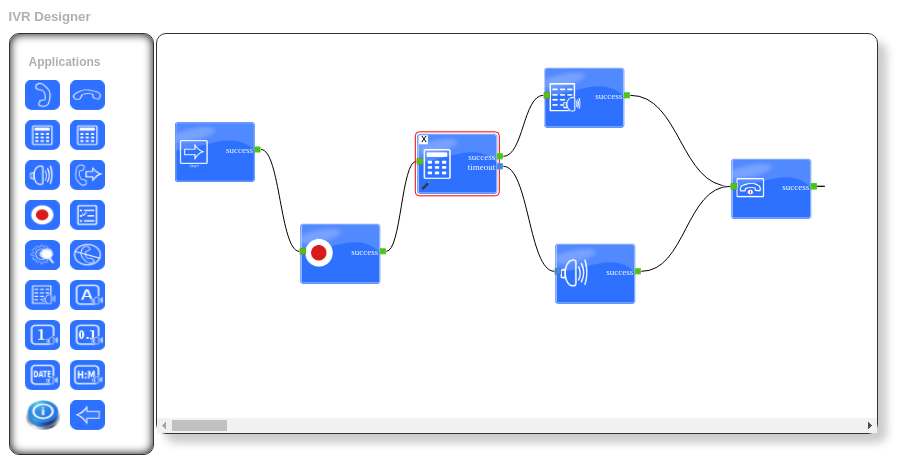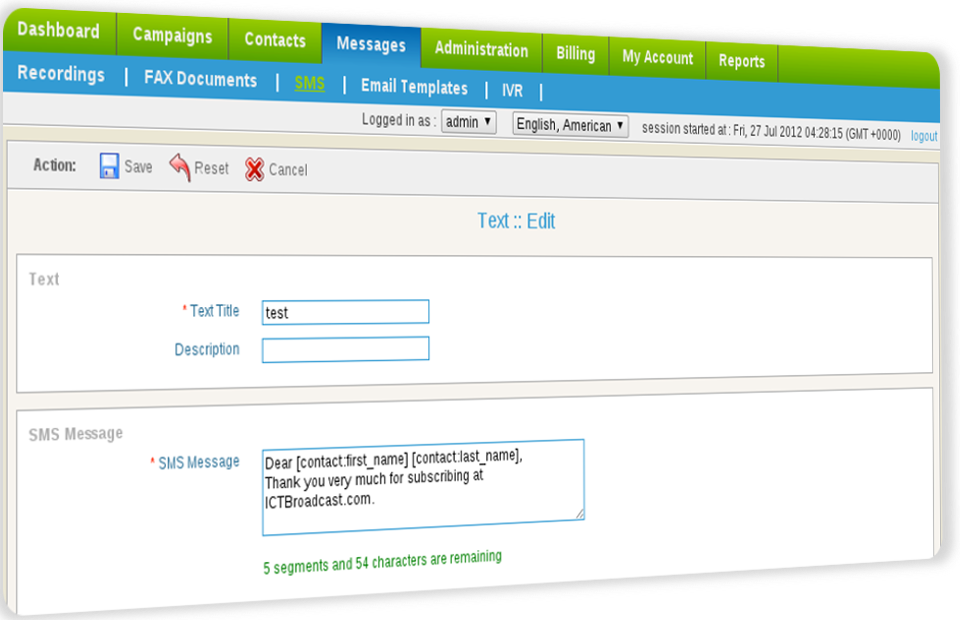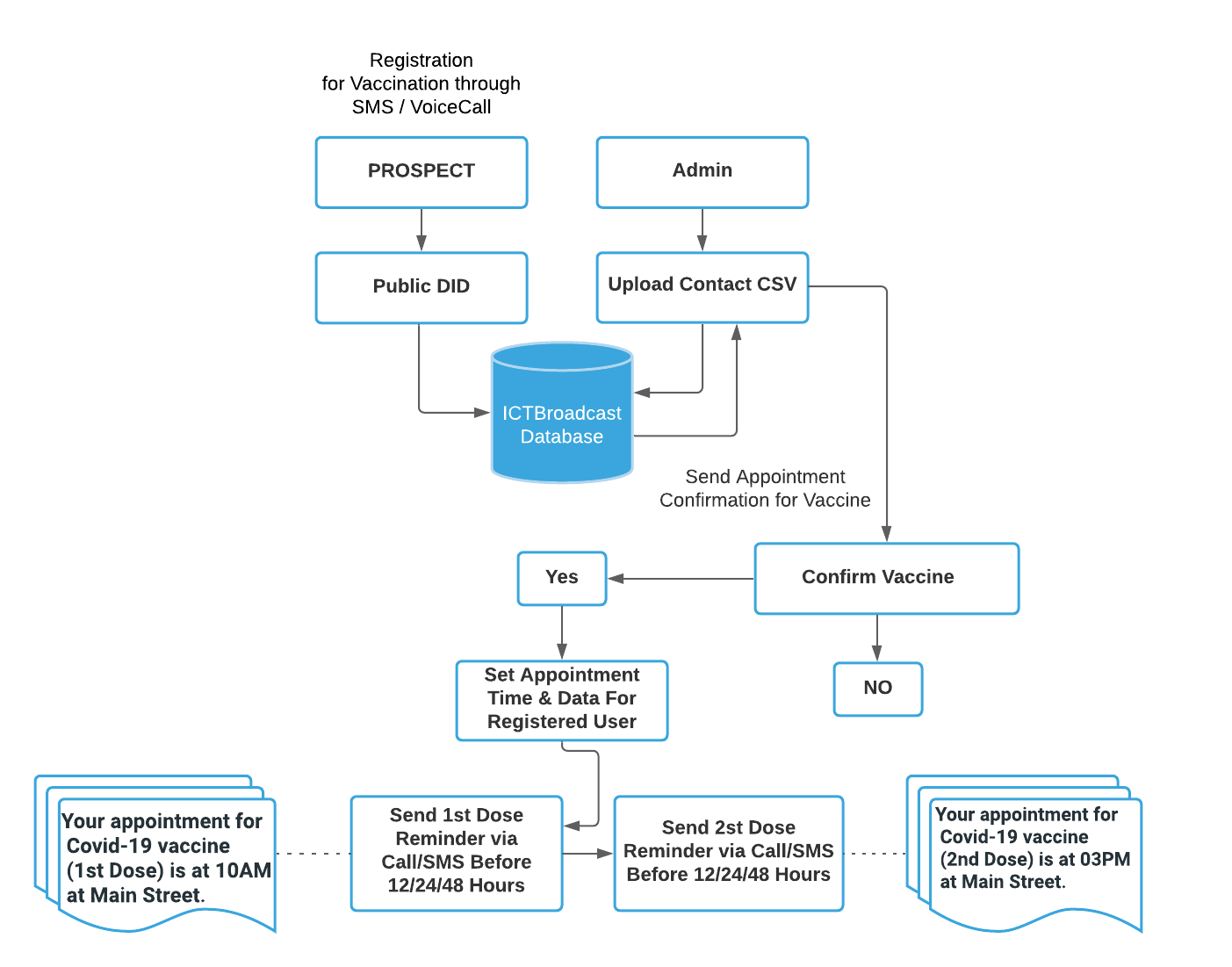In today’s rapidly evolving business landscape, maintaining a competitive advantage and fostering growth is heavily reliant on successful customer outreach strategies. Yet, the conventional approaches to connecting with customers through phone calls often prove to be time-intensive, labor-demanding, and susceptible to human errors. Fortunately, the emergence of automated phone calling software has introduced a groundbreaking solution.
Termed as autodialers or robocallers, automated phone calling software stands as a technological breakthrough that streamlines the intricacies of outbound calling. Powered by sophisticated algorithms and artificial intelligence, this software has the capacity to manage a substantial volume of calls, execute diverse tasks, and significantly enhance overall efficiency in customer interactions.
I. Introduction to Automated Phone Calling Software:
Referred to as autodialers or robocallers, automated phone calling software is a innovative arrangement that grants businesses the capacity to start a significant volume of phone calls consequently. These software stages use either prerecorded messages or intuitively voice reaction (IVR) systems to lock in with customers or prospective clients. Through the automation of the calling prepare, companies can preserve profitable time and resources, permitting their workforce to focus on more significant tasks.

II. Benefits of Automated Phone Calling Software:
Increased Productivity:
The utilization of automated phone calling software presents a notable edge in terms of bolstering productivity. In contrast to manual dialing, which demands substantial time spent on dialing numbers, awaiting responses, and leaving voicemails, automated software eradicates these cumbersome steps. Consequently, employees can execute a higher volume of calls in a condensed time frame. This heightened efficiency leads to escalated productivity and creates a greater avenue for proficiently connecting with customers.
Time Savings:
In the realm of business, time stands as a valuable asset, and the automation of phone calls holds the potential to conserve a substantial portion of it. Through the implementation of automated software, the necessity for manual dialing, waiting for call responses, and message delivery is eradicated. These tasks are seamlessly managed by the software, affording employees the opportunity to dedicate their attention to other pivotal endeavors. Moreover, autodialers possess the capability to autonomously leave voicemails, thereby curtailing the time invested in contacting missed calls.
Improved Reachability:
By incorporating automated phone calling software, your team is guaranteed to engage with a more extensive array of contacts in a highly efficient manner. This software has the capability to initiate numerous calls concurrently, thereby elevating the likelihood of establishing connections with potential clients or customers. Furthermore, autodialers can be configured to execute calls during specific timeframes when the probability of successful contact is heightened, consequently amplifying the rates of successful outreach.
Personalization and Customization:
Contrary to popular belief, automated phone calling software can offer a high degree of personalization. With advanced software, you can customize your messages, add personalized details like the recipient’s name, and even incorporate variables to make each call feel personalized. This level of customization enhances customer engagement and improves the overall effectiveness of your calling campaigns.

Data Analytics and Insights:
Automated phone calling software gives important information and insights that can help businesses refine their calling strategies. These software systems frequently come with built-in analytics tools that track call metrics such as call length, success rates, and response rates. By analyzing this data, businesses can identify patterns, optimize their calling scripts, and make data-driven decisions to improve their in general calling execution.
III. Use Cases for Automated Phone Calling Software:
Sales and Marketing:
Automated phone calling software is particularly useful for sales and marketing teams. It allows them to reach a large number of prospects efficiently, increasing the chances of generating leads and closing sales. Autodialers can be integrated with CRM systems, enabling sales representatives to access customer information during the call and personalize their pitch effectively.
Customer Support:
Automating phone calls can also benefit customer support departments. Businesses can use autodialers to provide updates to customers, conduct satisfaction surveys, or deliver important notifications. By automating these processes, customer support teams can handle a higher volume of calls and provide timely assistance to customers.
Appointment Reminders:
Many businesses, such as healthcare providers or service-based industries, rely on appointments. Automated phone calling software can be used to send appointment reminders, reducing no-shows and improving overall scheduling efficiency. This feature can save administrative time and improve customer satisfaction.

Debt Collection:
Debt collection is a basic prepare for many businesses, and automated phone calling software can streamline this regularly time-consuming errand. By automating debt collection calls, businesses can reach a expansive number of debtors, track call results, and raise calls to live agents when necessary. This automation reduces manual efforts, increments efficiency, and improves debt recovery rates.
IV. Factors to Consider When Choosing Automated Phone Calling Software:
When selecting an automated phone calling software solution, businesses should consider the following factors:
Scalability:
Ensure that the software can handle your organization’s call volume necessities. It should be able to scale as your business develops without compromising call quality or execution.
Compliance:
Verify that the software follows to relevant directions and guidelines for phone calling, such as telemarketing laws and privacy regulations. Non-compliance can lead to serious legal consequences.
Integration Capabilities:
If you use CRM or other trade systems, ensure that the software can integrate with your existing infrastructure. This integration empowers seamless data stream and gives a comprehensive see of customer intuitive.
Reporting and Analytics:
Search for software that offers robust reporting and analytics highlights. These tools give valuable insights into call performance, campaign effectiveness, and client behavior, helping you make data-driven choices.
Ease of Use:
User-friendly software minimizes training time and allows employees to quickly adapt to the new system. Look for software with an intuitive interface and comprehensive documentation or support resources.
V. Conclusion:
The utilization of automated phone calling software brings forth a spectrum of advantages for businesses aiming to augment their productivity and operational efficiency. Through the automation of the calling procedure, businesses can amass time savings, broaden their reach to potential clients, tailor messages to individual preferences, and amass valuable data for comprehensive analysis. Whether applied in sales, marketing, customer support, or debt collection, the integration of automated phone calling software possesses the potential to revolutionize the manner in which businesses engage with their clientele and prospects. When in the process of selecting an appropriate solution, factors such as scalability, compliance adherence, integration capabilities, reporting functionalities, and user-friendliness warrant consideration. The incorporation of automated phone calling software constitutes a substantial stride towards the optimization of calling operations, thereby paving the way for elevated levels of productivity and operational efficiency.
Leveraging Open SOurce in ICT